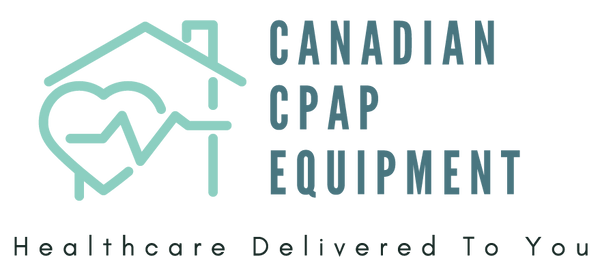Welcome to our special "Ask the Expert" session! We understand that navigating the world of sleep apnea, from diagnosis to treatment, can bring up a multitude of questions. To help clarify common concerns and provide direct answers, we've compiled some of the most frequently asked questions about sleep apnea and at-home sleep apnea test, drawing on insights from our sleep-trained respirologists and medical team. While this isn't a live session, it's designed to address the queries we often receive, offering expert perspectives to empower your sleep health journey.
Q1: Can I really trust an at-home sleep apnea test for an accurate diagnosis?
Expert Answer: Yes, absolutely, for the vast majority of individuals suspected of having Obstructive Sleep Apnea (OSA). Clinically validated at-home sleep apnea tests (HSATs), like the WatchPAT ONE, are highly accurate and reliable. They measure key physiological parameters (like breathing patterns, oxygen levels, and heart rate) that are crucial for diagnosing OSA. The data is then interpreted by qualified medical professionals, such as sleep-trained respirologists, ensuring a precise diagnosis. While in-lab polysomnography (PSG) remains the gold standard for more complex cases or other sleep disorders, HSATs provide sufficient and accurate data for most OSA diagnoses, making the process much more convenient and accessible.
Q2: What are the most common signs that I might have sleep apnea, beyond just snoring?
Expert Answer: While loud, chronic snoring is a well-known symptom, it's crucial to look for other indicators. The most common and impactful symptom is excessive daytime sleepiness (EDS) – feeling tired, drowsy, or fatigued throughout the day, even after what you perceive as a full night's sleep. Other key signs include waking up with morning headaches, gasping or choking during sleep (often witnessed by a bed partner), irritability, difficulty concentrating, memory problems, and frequent nighttime urination. If you experience a combination of these, it's highly advisable to get tested.
Q3: I've been diagnosed with mild sleep apnea. Do I really need treatment, or can I just manage it with lifestyle changes?
Expert Answer: Even mild sleep apnea can have significant health consequences and impact your quality of life. While lifestyle modifications (like weight loss, avoiding alcohol before bed, and positional therapy) can certainly help and are often recommended, they are rarely a complete solution on their own. Untreated mild sleep apnea can still lead to chronic fatigue, impaired cognitive function, and contribute to long-term health risks like cardiovascular issues. It's always best to discuss a comprehensive treatment plan with your sleep specialist, which may include CPAP therapy, oral appliances, or a combination of approaches, alongside lifestyle adjustments.
Q4: How long does it typically take to adjust to CPAP therapy?
Expert Answer: The adjustment period for CPAP therapy varies from person to person, but most individuals adapt within a few days to a few weeks. It's normal to feel a bit awkward or even claustrophobic initially. Key factors for successful adjustment include finding a comfortable, well-fitting mask, utilizing comfort features on your machine (like ramp and humidification), and consistent use. Patience and persistence are crucial. Don't hesitate to communicate any discomfort or issues with your CPAP provider or sleep specialist; they can offer solutions and support to help you achieve comfortable and effective therapy.
Q5: What's the difference between Obstructive Sleep Apnea (OSA) and Central Sleep Apnea (CSA)?
Expert Answer: The primary difference lies in the cause of the breathing interruptions. In Obstructive Sleep Apnea (OSA), the airway is physically blocked or collapses, usually due to relaxed throat muscles or excess tissue. This is the most common type. In Central Sleep Apnea (CSA), the brain fails to send the proper signals to the muscles that control breathing, meaning there's no effort to breathe for a short period. While symptoms can overlap, the underlying mechanisms are distinct, and treatment approaches may differ. At-home tests are primarily designed for OSA, and if CSA is suspected, an in-lab study might be recommended.
Q6: Can sleep apnea affect my heart health?
Expert Answer: Absolutely, and this is one of the most serious implications of untreated sleep apnea. The repeated drops in oxygen levels and surges in blood pressure during apneic events put immense strain on your cardiovascular system. This significantly increases the risk of high blood pressure (hypertension), heart attack, stroke, heart failure, and irregular heartbeats (arrhythmias), particularly atrial fibrillation. Treating sleep apnea is a critical step in protecting your long-term cardiovascular health.
Q7: What are the long-term benefits of consistent sleep apnea treatment?
Expert Answer: The long-term benefits of consistent sleep apnea treatment are profound and far-reaching. Beyond eliminating snoring and improving sleep quality, effective treatment can: reduce excessive daytime sleepiness, improve concentration and memory, stabilize mood, lower blood pressure, decrease the risk of heart attack and stroke, improve blood sugar control in diabetics, and enhance overall quality of life. It's an investment in your health that pays dividends for years to come.
We hope this expert Q&A has provided valuable insights into your sleep apnea questions. Remember, this information is for general guidance, and you should always consult with your healthcare provider for personalized medical advice.
Next Steps: Understanding the different types of sleep apnea is crucial for effective treatment. In our next post, we'll delve into the distinctions between Central Sleep Apnea and Obstructive Sleep Apnea.

